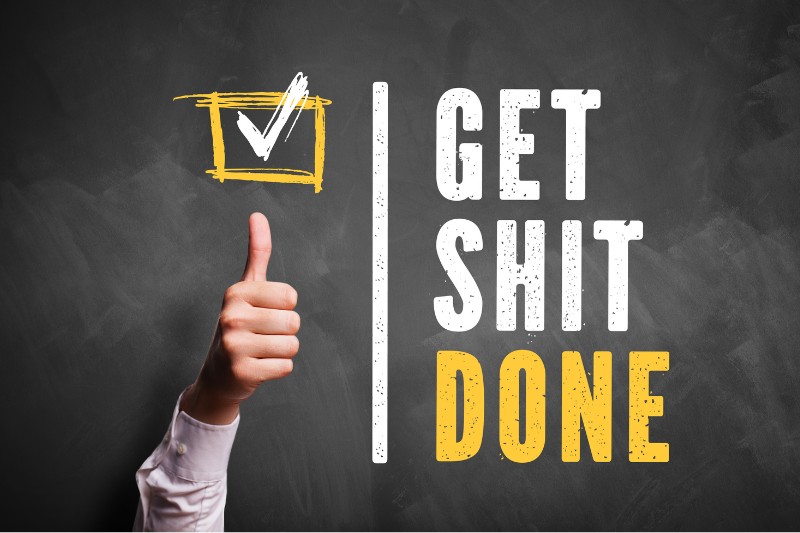Need to get shit done but really don’t feel like doing anything? That would explain why you’re procrastinating by reading this article!
As humans, we are pleasure seekers, pain avoiders. And in 2024, it’s tougher than ever to pull away from doom-scrolling on our phones to take care of more important things – take smartphone addiction test on this site. That’s why I put together a quick list of strategies you can implement right now to get over the slump hump, get shit done, and build forward momentum.
1. The Two-Minute Rule
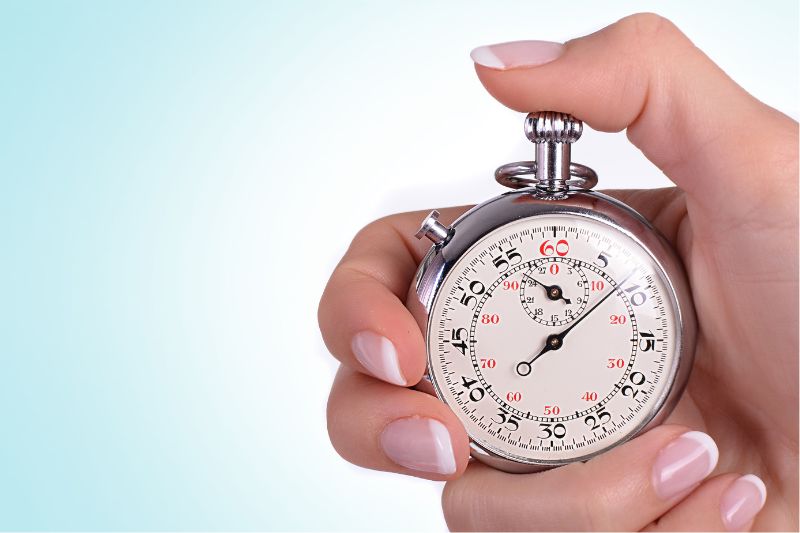
What is it?
The Two-Minute Rule is a simple strategy by David Allen in his book Getting Things Done that suggests if a task takes less than two minutes to complete, you should do it immediately.
Why it works?
If you knock it out now, it cuts procrastination off at the knees and nixes the mental clutter associated with too many pending tasks on your to-do list (or more appropriately, your list of shit to forget about).
When you get shit done, it helps work you into a flow state, builds momentum, and gives you a sense of accomplishment. These quick “runs on the board” help you build your self-efficacy. Over time, these tiny little victories build up and this can motivate you to take on bigger, more important tasks.
While recovering from my pituitary tumour, I found that smashing through the small tasks gave me a lot more mental bandwidth and helped create space for my larger projects that demanded my attention.
2. The Pomodoro Technique
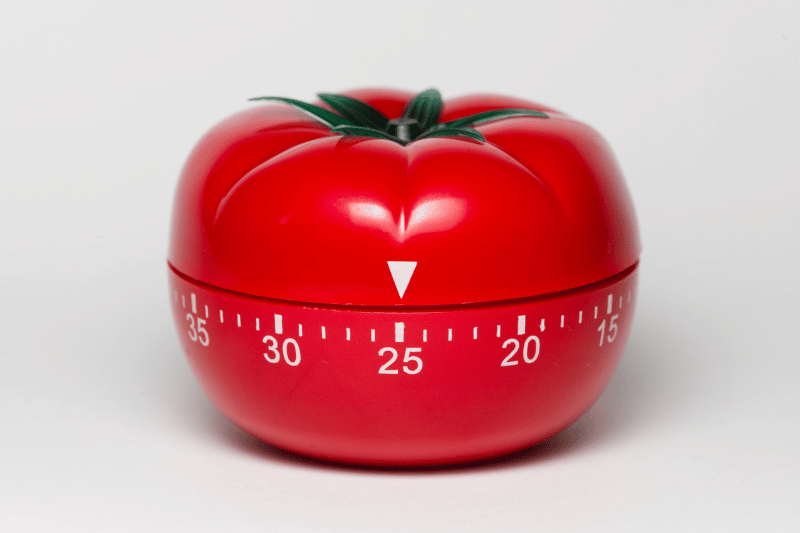
What is it?
The Pomodoro Technique is a time management method that involves working in focused bite-sized intervals, traditionally 25 minutes, followed by short breaks.
Why it works?
If you’ve ever worked on something complex for hours and hours, you know that after a certain amount of time, your brain goes offline and your physical body is just going through the motions.
The Pomodoro Technique’s structured approach helps you stay motivated and focused, and the breaks prevent burnout. In fact, researchers at Maastricht University in the Netherlands found that taking pre-determined, systematic breaks during a study session had mood benefits and appeared to have efficiency benefits (i.e., similar task completion in shorter time) over taking self-regulated breaks.
Importantly, the sense of accomplishment after each completed interval can motivate you to keep going, even when you don’t feel like it.
3. Create a rewarding environment

What is it?
Creating a rewarding environment involves setting up your workspace in a way that makes it enjoyable and appealing to work.
Why it works?
Think bland office cubicles. Inspiring, right? No, not really the best place to get shit done, is it?
Spruce up your work space to make it feel more inviting and energising. Put some plants in your office, inspiring art on the wall, or other visually stimulating decor. Listen to music that motivates you and gets you into the groove. By spiffing up your surroundings, you will feel more inspired to engage with your tasks, even when you’re not feeling particularly motivated.
During my PhD, I only worked from places that motivated me and gave me energy. If I went for a surf, I brought my work with me to the beach and got things done in the car in between surf sessions. If I was writing an article, I would take long walks and take handwritten notes and use voice dictation.
4. Break tasks into smaller steps
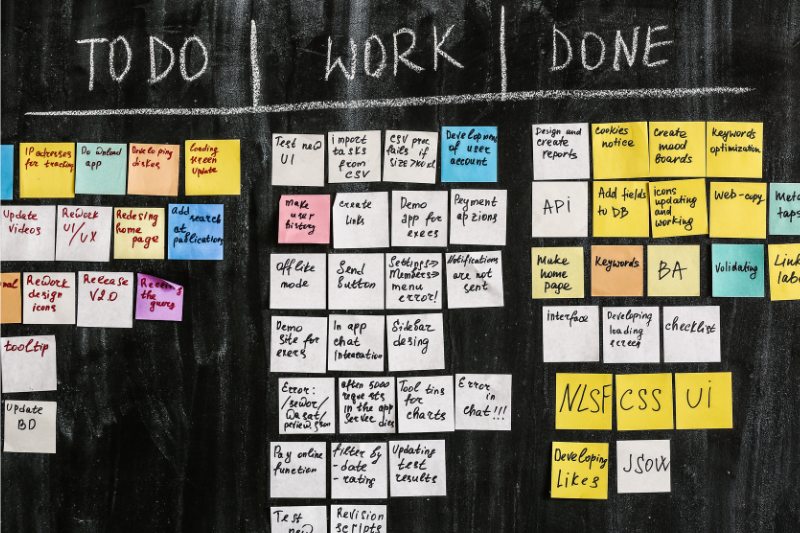
What is it?
Breaking tasks into smaller steps involves taking a large, imposing task and dividing it into more manageable, bite-sized steps.
Why it works?
Large tasks can often kick you in the guts and demotivate you before you even start. Breaking that big project down into smaller steps can make you feel more in control and less overwhelmed. Crossing off each small step provides you with a sense of progress and accomplishment, encouraging you to keep going.
How do you eat an elephant? One bite at a time. learned this lesson while writing my dissertation. Instead of focusing on producing hundreds of pages, it was more manageable to focus on one paragraph at a time!
5. The body double technique

What is it?
The Body Double Technique, also referred to as an accountability partner, involves having someone physically present (or virtually, if necessary) while you work, even if they’re not actively participating in the task.
Why it works?
The presence of another person can create a sense of accountability and motivation, making it harder to procrastinate or get distracted.
However, the caveat here is that you need to choose the right person because if they’re easily distracted, you might find yourself sucked into their procrastination vortex (or end up drinking down at the local bar when you should be getting things done)!
6. Use the 20-Second Rule
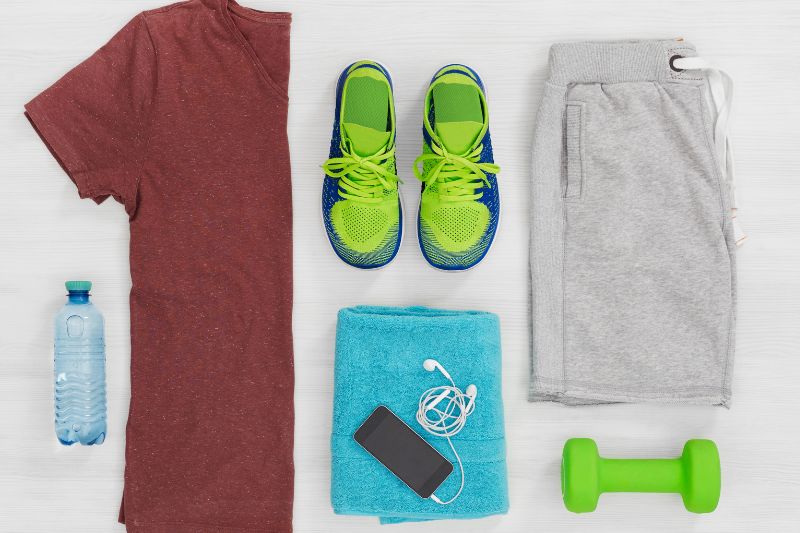
What is it?
The 20-Second Rule is based on the principle of reducing friction and involves making tasks more convenient to start by reducing the barriers, whether physical or mental.
Why it works?
By making it easier to initiate a task, such as placing your workout clothes and shoes right next to your bed or keeping your project materials readily accessible, you reduce the effort required to begin, making it more likely that you’ll start, even when you don’t feel like it.
I call this the “in-sight-in-mind” technique. Trash needs to go out? I put it on front of the door so I’ll take it out when I leave. Need to hit the gym? Same thing, I leave my backpack blocking the door. The visual cues keep the tasks in the forefront of my mind.
7. Implement accountability measures

What is it?
Implementing accountability measures involves sharing your goals and commitments with others, joining an online community with similar goals, or setting up consequences for not completing tasks.
Why it works?
Sharing your plans with others creates a sense of accountability, motivating you to follow through. The fear of letting others down or facing consequences can be a powerful motivator when you’re feeling unmotivated.
8. Celebrate small wins

What is it?
Celebrating small wins involves taking the time to acknowledge and celebrate the small victories along the way, instead of focusing solely on the end goal.
Why it works?
While it’s nice to celebrate big wins, celebrating your small wins can provide a much-needed motivational boost and reinforce the positive habit of getting things done. It can also help you stay resilient and positive, even when tackling larger or more challenging tasks.
Take home message
Find the techniques that work best for you and help you build momentum. Experiment with different approaches, and combine or modify them to create your own personalised system to get shit done, even on those days when you’d rather not do anything at all.

